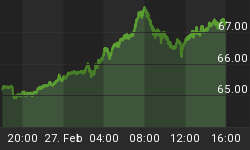News that JP Morgan lost $2 billion trading synthetic credit securities is spreading like wild fire. Shares of JPM are deeply in the red. The stench of Volcker is in the air:
"It's a pretty stunning admission for a company that prides itself on its risk management systems and the strength of its balance sheet. The timing couldn't be worse for the industry. At the end of the day, it will have ramifications across the broker-dealer community." Sterne Agee analyst Todd Hagerman.
What makes the story even more interesting is that it comes after JP Morgan's Bruno Iksil received media attention for reportedly taking some very bold market positions, and also after Mr. DImon ignored (was unaware?) of the danger in some of the company's hedges.
"Dimon has previously scoffed at media reports calling the firm's risk profile into question..." Barron's
Given that this isn't a case of a rogue trader but a rogue hedging strategy (a strategy that mysteriously 'morphed' into something else), the questions beg: when did the outspoken Mr. Dimon know things were going wrong and how intimately was he involved in trying to hedge the intial hedge(s)?
"In hindsight, the new strategy was flawed, complex, poorly reviewed, poorly executed and poorly monitored. The portfolio has proven to be riskier, more volatile and less effective an economic hedge than we thought." Dimon. JP Morgan Conference Call
Along with the more popular snippits from yesterday's call, also consider that Mr. Dimon said that "It could get worse" (twice), and "hopefully...not be an issue by the end of the year". These statements suggest the company may be closer to the classification rather than the remediation stage of unsuccessful-strategy-unwinding.
There was also the fascinating exchange that took place when a perplexed caller had the audacity to ask about the possibility of simply unwinding the suspect positions. Dimon, conceding only that another billion or so in losses could be coming, would have none of it.
"We've got staying power, and were ready to use it." (15:45)
In a rare moment of sinking-ship confidence usually reserved for U.S. policy makers during a financial calamity, that Mr. Dimon was compelled to use the term 'staying power' is astonishing. How does a presumeably isolated $2 billion loss for a $155 billion company that is still highly profitable translate into JPM being forced to sell any of its positions at an inopportune time?
The Man Who Knew Nothing

While certain to provide fodder for those that contend the banks should be broken up (which they should be), there is a more simple observation that highlights the overly secretive and untransparent nightmare that is the giant U.S. financial companies:
Mr. Dimon just spent more than 28 minutes apologizing for something he couldn't talk about. The size of the trades in question, the markets involved, the liquidity situation, the exposures, who is/has gotten fired, etc...are these really secrets that must be kept under lock and key?
In short, based upon any alignment of the numbers, JP Morgan has all the 'staying power' an 'egg-faced' CEO could dream of. But even before yesterday happened this would not be saying much.
"Some banks do some things and some do others, but...to invest those excess deposits you buy securities. It's been going on for a hundred years in banking" Dimon















